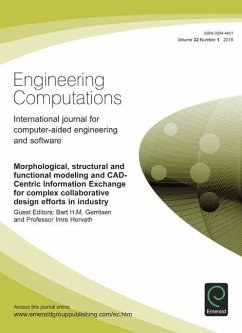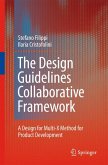This e-book of the Journal of Engineering Computations casts light on the advancements in terms of the methods and tools for modelling products and systems. It is well known from the literature that there are many new research problems and open issues concerning complex product and system modelling due to architectural and operational complexities, as well as to methodological deficiencies and limitations. They can prevent providing a purposeful and effective support for advanced engineering activities. For instance, (i) the development of testable concepts or design variants may be blocked, (ii) insightful structural or behavioural analysis may be obstructed, or (iii) the product manufacturing and real-life operations cannot be simulated or even realized. Though some of the mentioned challenges may not belong to the front line of scientific research, they need to be resolved in order to support the current engineering practice. This underpins the theme selection for this special issue. Achieving progress in advanced modelling of complex products and systems is step-by-step process. With regards to the above mentioned challenges, we must also take into account not that the state of technology (including tools and techniques) is the most severe limiting factor, but the state of our knowledge and understanding. It has been recognized that some of the traditional methodologies and methods are not sufficiently powerful to address complex problems. For instance, they can only be applied to a specific set of design problems, or to a limited set of enabling technologies. If the used methodologies can any more not fulfil the needs under the influence of emerging and rapidly evolving product development technologies, then we are forced to reconsider our methodologies. The first group includes papers that address issues associated with the morphological (geometric, topological and structural) attributes of the design object. The second group comprises papers that discuss issues associated with the application context of product models. They deal with methodological challenges that typically present in the application-dependent downstream activities of product realization, including complex product models of engineering analysis and simulation, manufacturing process planning, and supply chain design.
Dieser Download kann aus rechtlichen Gründen nur mit Rechnungsadresse in A, B, BG, CY, CZ, D, DK, EW, E, FIN, F, GR, HR, H, IRL, I, LT, L, LR, M, NL, PL, P, R, S, SLO, SK ausgeliefert werden.









